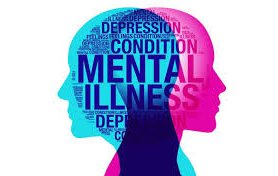In 2025, Africa is embracing a transformative wave where sports are no longer seen purely as competitive activities but as essential tools for improving public health. With the rise of non-communicable diseases (NCDs), mental health challenges, and sedentary lifestyles—particularly among urban youth—many African nations are now investing in sports as a preventive and therapeutic measure to promote healthier living.
From Stadiums to Clinics: The Health Benefits of Sports
Research across the continent shows a growing awareness of how regular physical activity reduces the risk of heart disease, diabetes, obesity, and even some cancers. Governments and health organizations are now using sports to tackle these preventable illnesses. In countries like Kenya, Nigeria, and South Africa, national campaigns such as “Afya Kwanza” (Health First) and “Move Nigeria” have been launched to encourage citizens to stay active through organized community sports events, school competitions, and public fitness challenges.
In Nairobi, every Sunday is now “Car-Free Day” in parts of the city, allowing residents to jog, cycle, and dance in the streets—an initiative that has sparked similar programs in Accra, Kigali, and Addis Ababa. These efforts not only promote physical well-being but also build community spirit and reduce social isolation.
Youth Empowerment and Mental Health
With over 60% of Africa’s population under the age of 25, youth engagement through sports has become a priority. Football, basketball, athletics, and even traditional games are being used in schools and community centers to keep young people active, focused, and mentally healthy.
In Uganda, the “Kick Out Depression” program integrates sports with mental health awareness campaigns, offering young people safe spaces to talk about their struggles while participating in team sports. Similar initiatives are gaining traction in West Africa, where NGOs use boxing and martial arts to help rehabilitate street youth and reduce substance abuse.
Women Breaking Barriers
2025 has also seen a surge in women-led sports health campaigns. From netball in Malawi to long-distance running in Ethiopia, women are using sports to empower themselves, challenge gender stereotypes, and improve maternal health through fitness. The “Strong Girls, Strong Nation” initiative in Ghana combines sports training with reproductive health education, reaching thousands of girls in rural areas.
Public Policy and the Road Ahead
Recognizing the role of sports in national development, African governments are beginning to include physical activity in their health policies. The African Union’s Health Through Sports 2025 Agenda calls for member states to allocate more funding to grassroots sports programs and public awareness campaigns on healthy lifestyles.
Dr. Chinedu Okeke, a Nigerian public health expert, notes: “The fight against lifestyle diseases cannot be won in hospitals alone. We need to get people moving, and sports provide a culturally relevant, accessible, and enjoyable way to do that.”
Conclusion
As Africa continues to develop rapidly, integrating sports into health strategies offers a sustainable and inclusive path toward wellness. Whether on dusty village pitches, urban basketball courts, or school playing fields, sports are proving to be more than games—they are medicine, empowerment, and unity in action. In 2025, Africa is showing the world that the road to better health may just begin with a simple kick of the ball.
